Problem-Solving Skills Extra Challenge Subtraction Worksheets for Ages 5-6
5 filtered results
-
From - To
Boost your child's math confidence with "Problem-Solving Skills Extra Challenge Subtraction Worksheets for Ages 5-6"! These engaging worksheets are meticulously designed to develop both problem-solving skills and subtraction proficiency in young learners. Ideal for kindergarten and first-grader students, the exercises offer fun and challenging scenarios that encourage logical thinking and reinforce subtraction concepts. With vibrant illustrations and a variety of activities, children will stay motivated and entertained while building essential math skills. Perfect for both classroom use and at-home learning, our worksheets provide an excellent foundation for future mathematical success. Unleash your child's potential today!
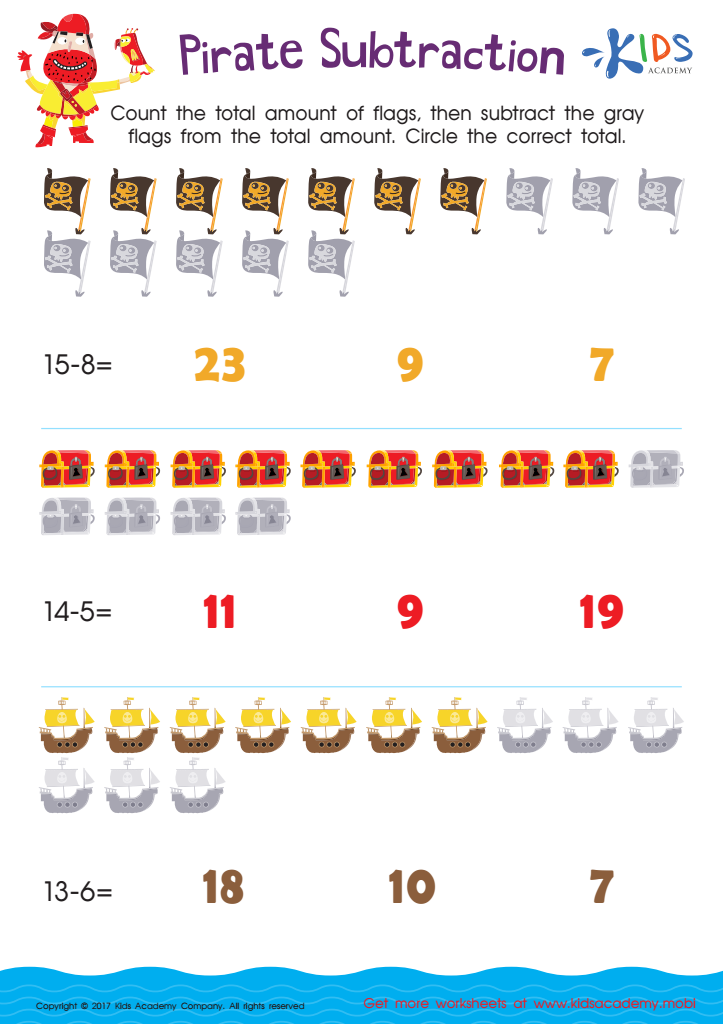

Pirate Subtraction Substraction Worksheet
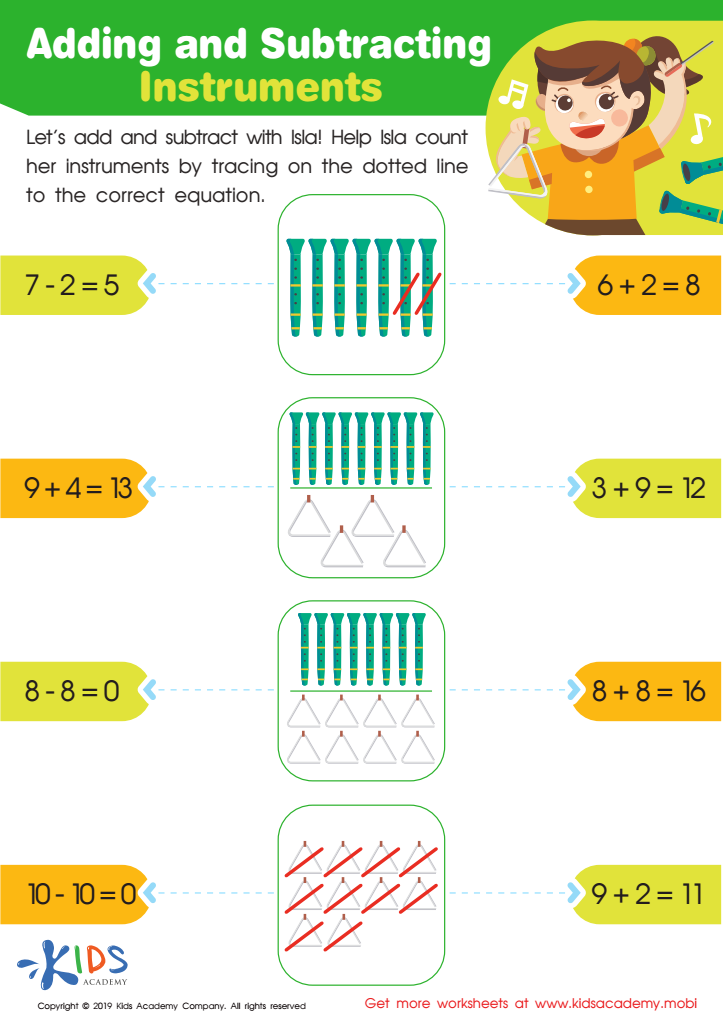

Adding and Subtracting: Instruments Worksheet
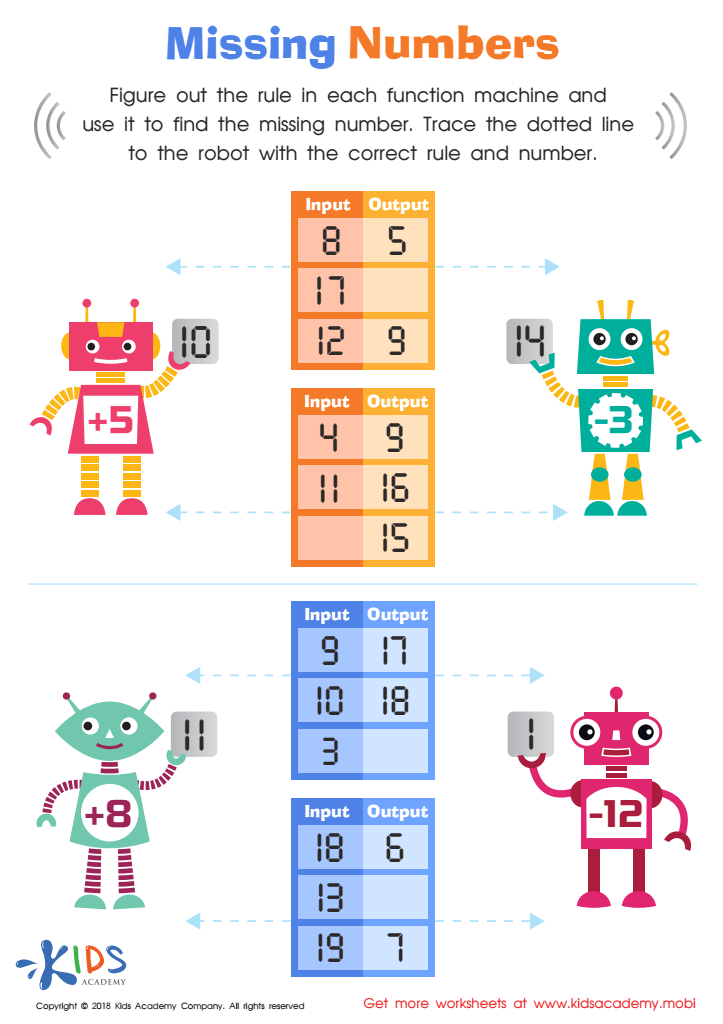

Missing Numbers Worksheet
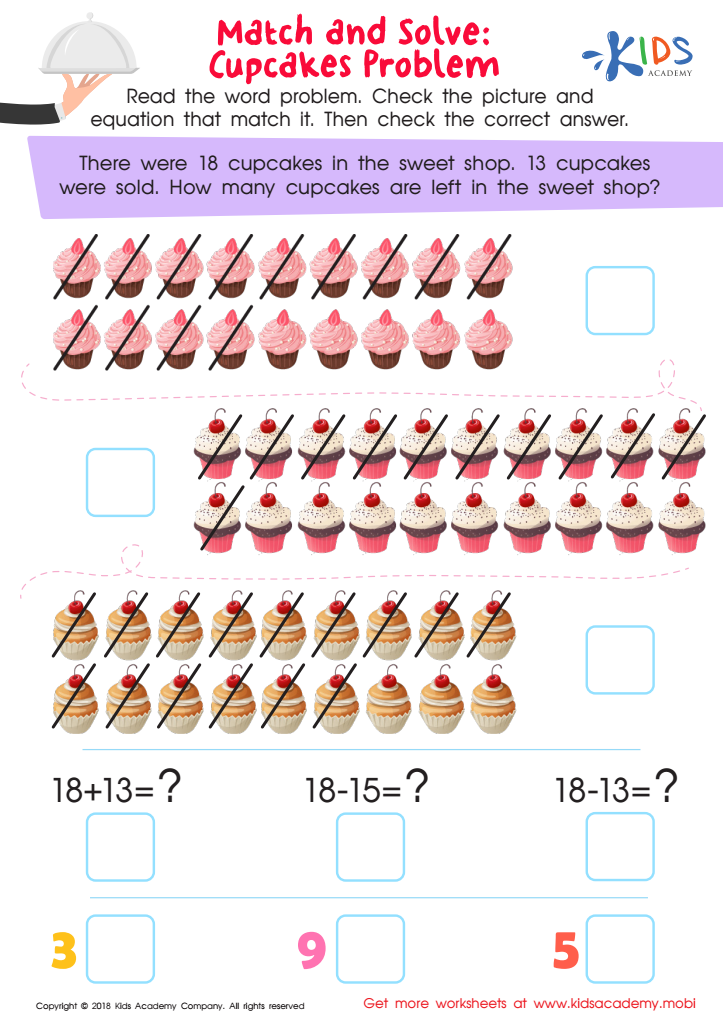

Match and Solve: Cupcakes Problem Worksheet
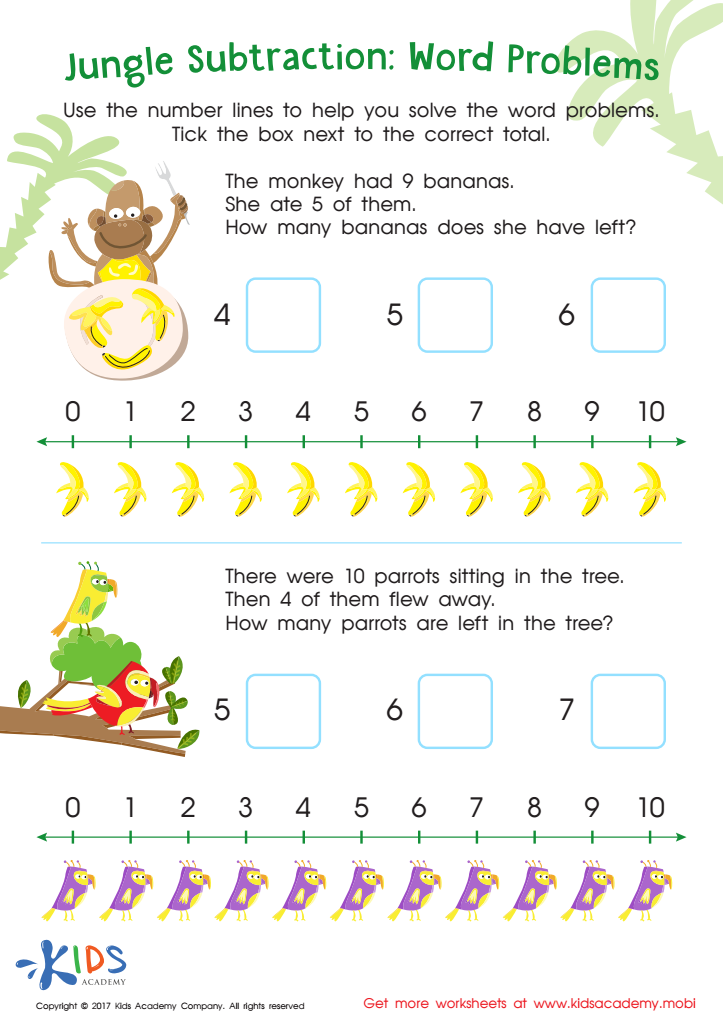

Jungle Subtraction Word Problems Substraction Worksheet
Parents and teachers should care about providing extra challenges in problem-solving skills, especially focusing on subtraction for ages 5-6, for several crucial reasons. At this age, children are at a formative stage in their cognitive and academic development. Subtraction not only helps them understand the concept of "taking away" but also lays the foundation for more advanced mathematical operations. Strengthening these skills early can dramatically enhance their numerical fluency and confidence.
Problem-solving challenges encourage critical thinking and resilience, as youngsters learn to approach problems methodically and persist through difficulty. This is essential not just for math, but for real-world situations they will encounter throughout their lives. Benefits spill over into other subjects as well, developing a child's overall logical reasoning, attention to detail, and ability to strategize.
Furthermore, introducing extra challenges can identify and nurture young mathematical talents early-on, ensuring that gifted children remain engaged and enthusiastic. It also provides insight into individual student needs, allowing educators and parents to cater to various learning styles.
Ultimately, fostering problem-solving skills in subtraction for young children equips them with the mental tools necessary for future academic success and life skills, making it a vital aspect of their early education.
 Assign to My Students
Assign to My Students
















